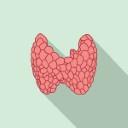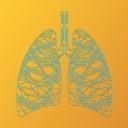-
July 24: The Week in Cancer News
People who have been diagnosed with cancer are more likely than those without a cancer history to adhere to measures like wearing masks and avoiding crowded areas, and CAR-T cell therapy is becoming an option for treating more types of cancer.
by Kate Yandell
-
July 17: The Week in Cancer News
A clinical trial suggests that some people with breast cancer may be able to receive radiation therapy over fewer sessions, and a survey shows that the coronavirus pandemic is stressing organizations that provide support to cancer patients.
by Kate Yandell
-
July 10: The Week in Cancer News
Upcoming guidelines for lung cancer screening could make more African Americans and women eligible, and the Food and Drug Administration approves a new oral treatment for myelodysplastic syndromes.
by Kate Yandell
-
July 2, 2020: The Week in Cancer News
A study finds that incidence of thyroid cancer rose by 169% between 1990 and 2017, and the Food and Drug Administration approves a version of a breast cancer treatment that can be given at home.
by Kate Yandell
-
June 26: The Week in Cancer News
A study finds that hereditary mutations are elevated in early-onset cancers, and initiatives aim to improve treatment for children with cancer.
by Kate Yandell and Marci A. Landsmann
-
June 19: The Week in Cancer News
A study indicates that a sedentary lifestyle increases risk of death from cancer, and the Food and Drug Administration approves the human papillomavirus vaccine for prevention of head and neck cancer.
by Kate Yandell
-
June 12: The Week in Cancer News
The American Cancer Society updates its guidelines on diet and physical activity, and a study projects that caring for Americans with cancer will cost more than $245 billion by 2030.
by Kate Yandell
-
June 5: The Week in Cancer News
Data show that some people with early-stage non-small cell lung cancer can benefit significantly from treatment with a targeted therapy, and COVID-19 slows the rate of enrollment in cancer clinical trials.
by Kate Yandell
-
May 29: The Week in Cancer News
A study shows that a more tolerable, dose-adjusted chemotherapy regimen can effectively treat a rare lymphoma, and data from registries provide information on which cancer patients are at greatest risk of death from COVID-19.
by Kate Yandell
-
May 22: The Week in Cancer News
A study finds that metastatic prostate cancer incidence rose after the U.S. Preventive Services Task Force urged against routine PSA testing, and the Food and Drug Administration approves two PARP inhibitors for treatment of prostate cancer.
by Kate Yandell
Cancer Talk
Treatment Combination Improves Survival in EGFR-positive Lung Cancer
Adding chemotherapy to targeted therapy improves outcomes for people with advanced EGFR-positive non-small cell lung cancer.
by Sandra Gordon
Lessons From 20 Years Living With CancerMultiple myeloma survivor Jonathan Gluck reflects on uncertainty, and the scientific progress that has kept him living with cancer for more than two decades.
by Eric Fitzsimmons
The Enduring Importance of Cancer Disparities ResearchOpening session from AACR conference highlights how perseverance and adversity have informed cancer disparities research over the years.
by Eric Fitzsimmons
Most Cancer Survivors Don’t Meet Healthy Diet GoalsDespite research linking fruits and vegetables to cancer survival, many people do not change their eating habits after diagnosis.
by Darlene Dobkowski














